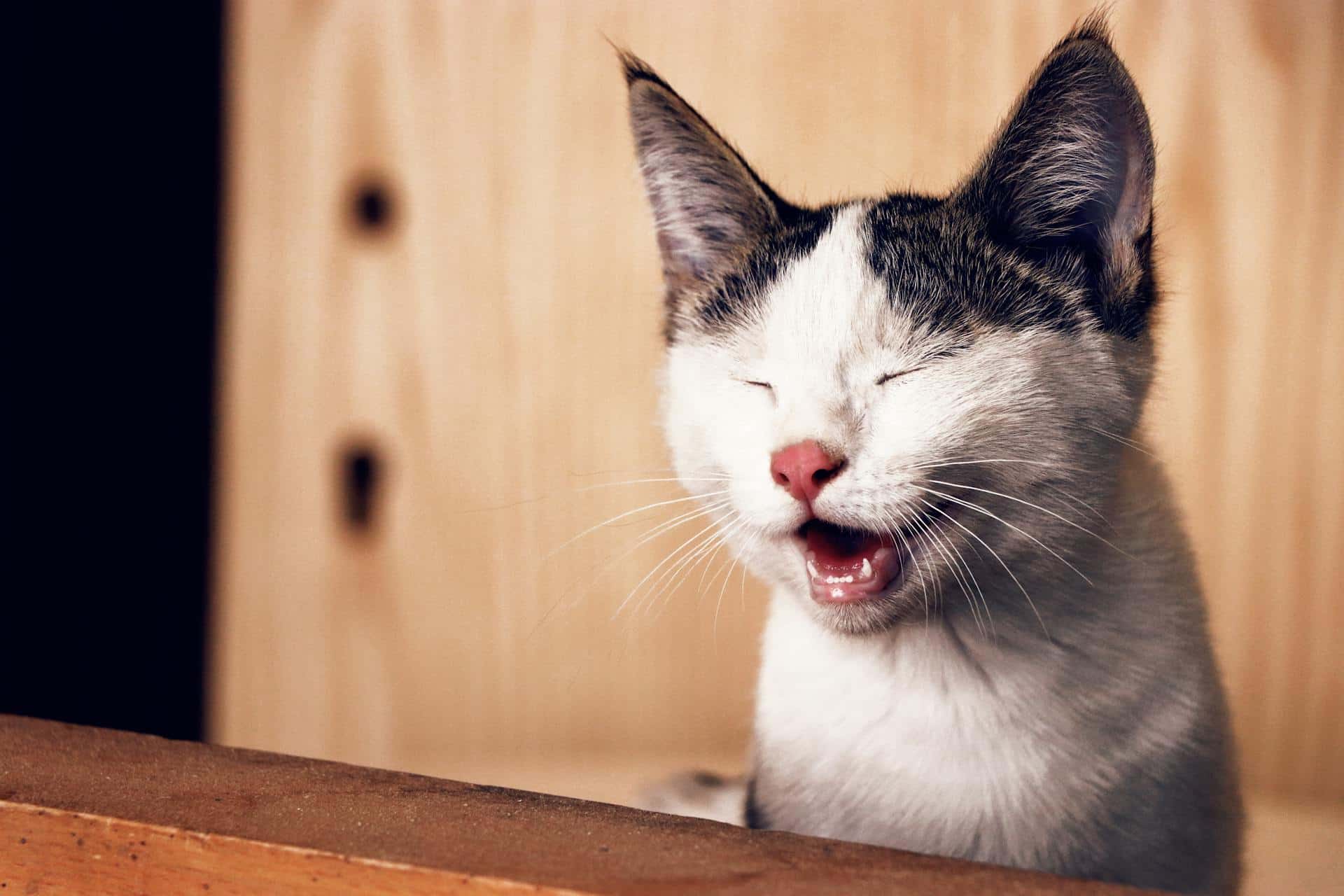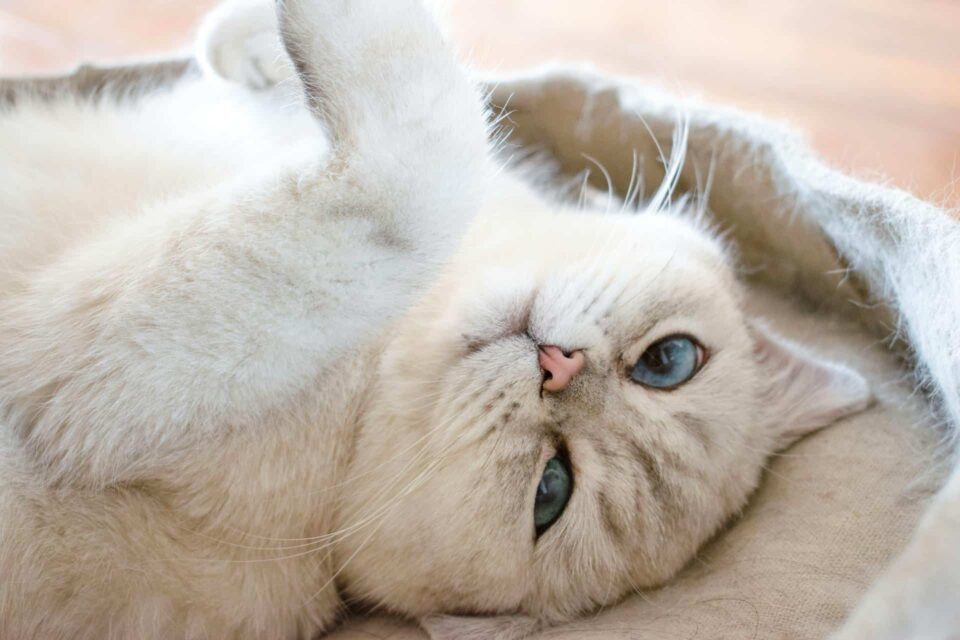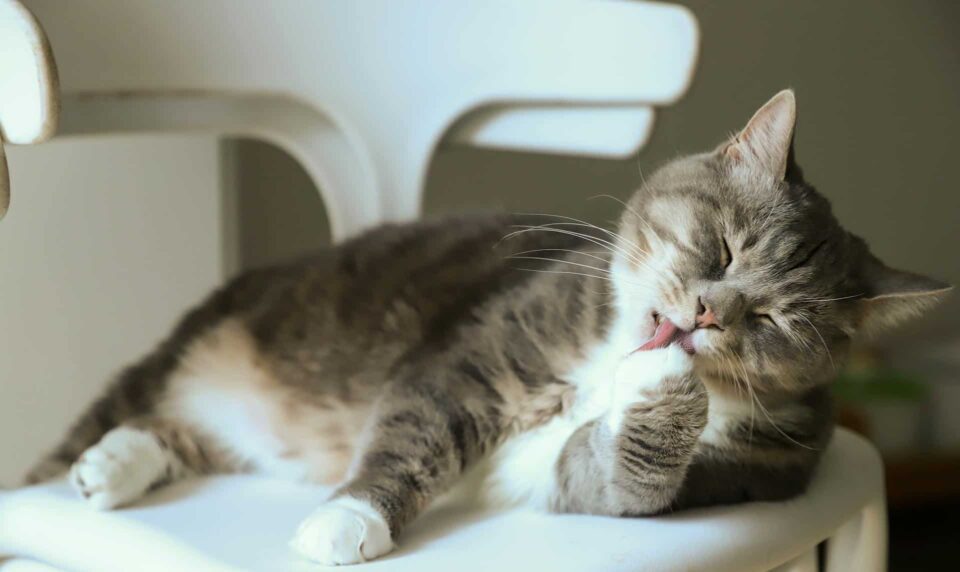
Achoo! Why Cats Sneeze and When to Worry
Cats, like humans, are susceptible to various respiratory issues that can lead to coughing and sneezing. Understanding why cats sneeze and when a cough is just a minor irritation versus a sign of a serious condition is crucial for pet owners. This knowledge can help in providing the best care for our feline companions and deciding when it's time to consult a veterinarian. In this article, we explore the common reasons behind these symptoms and offer guidance on when to seek professional help.
Key Takeaways
- Upper respiratory infections (URIs) are a common cause of coughing and sneezing in cats and can often be treated with prescription medications.
- Isolating a sneezing or coughing cat, especially in multi-pet households, is important to prevent the spread of infections.
- Persistent coughing, wheezing, or other symptoms such as loss of appetite or unusual breathing are signs that a veterinarian should be consulted.
Deciphering the Causes of Cat Coughs and Sneezes
Common Culprits: Infections and Allergies
When you notice your feline friend sneezing, you might wonder, why do cats sneeze? Just like humans, cats can be affected by a variety of allergens and pathogens that irritate their respiratory systems. Common culprits include infections such as the feline herpesvirus and allergies to pollen or dust. Allergies in cats can manifest in several ways, not just through sneezing but also via symptoms like itching, skin irritation, or digestive issues.
It's important to recognize that allergies can be more than just a nuisance. They can significantly impact your cat's quality of life and may be associated with other medical conditions. For instance, allergic reactions to insect bites can lead to severe symptoms. If you suspect your cat is suffering from allergies, a visit to the vet is essential. They can perform allergy testing and prescribe treatments, which may include oral medications or injections.
Remember, not all sneezes are created equal. Occasional sneezing may not be a cause for concern, but if it's persistent or accompanied by other symptoms, it's time to seek professional advice. Keep an eye out for signs of respiratory distress, and don't hesitate to consult your veterinarian for the best course of action.
Related: BASIC CARE TIPS TO KEEP YOUR CAT HEALTHY
Hairballs and Inhaled Objects: Misconceptions and Risks
When your cat starts coughing, it's easy to jump to the conclusion that they're trying to expel a hairball. However, coughing is often mistaken for gagging, which can occur for various reasons, such as drinking too quickly or the actual process of vomiting up a hairball. It's important to understand that these 'coughs' are not true coughs but rather a 'cough-gag-retch' reflex that originates from the digestive tract, not the airways.
In some cases, your cat may have inhaled a small object like a water droplet or crumb, leading to temporary coughing or sneezing. This usually resolves on its own, but if symptoms persist, it could indicate that something larger is at play. Here's what you can do to help prevent and manage these situations:
- Regular grooming: Brush your cat to remove loose hairs and reduce the chance of hairball formation.
- Dietary solutions: Consider hairball control cat foods or supplements after consulting with your vet.
- Monitor for persistent symptoms: If coughing and sneezing continue for several hours, or if other respiratory problems arise, seek veterinary advice.
Remember, while occasional hairballs are normal, persistent coughing, especially if accompanied by other symptoms, warrants a closer look. Keep an eye on your cat's behavior and consult your vet if you're concerned about their respiratory health.
Ease your cat's grooming woes and keep sneezes at bay with our Comb & Detangler Set, designed for fuss-free grooming sessions. Say goodbye to tangled fur and worries—invest in our grooming essentials today for a happier, healthier pet.
Serious Symptoms: Recognizing When to Seek Veterinary Care
When your cat's sneezes are accompanied by other worrying symptoms, it's crucial to be vigilant. Recognize signs of pain in cats through changes in vocalization, behavior, and physical symptoms. If you notice bloody or nasal discharge, labored breathing, or a persistent cough, these could be red flags. It's essential to tailor care based on breed and age, and not to delay seeking professional advice.
Here are steps to take if you suspect serious issues:
- Observe your cat for any additional symptoms such as fever, decreased appetite, or weight loss.
- Prioritize vet check-ups, especially if symptoms persist beyond a few days or worsen.
- Discuss your observations with your vet to determine the best course of action.
Remember, managing pain in your feline friend may require various approaches, and acting quickly can prevent more severe health problems. Always consult your veterinarian when in doubt, as they can provide the most appropriate care for your cat's unique needs.
Related: HOW TO GROOM A CAT THAT HATES BATHING

Managing Your Cat's Respiratory Health
Isolation and Care for Infectious Conditions
When your cat is diagnosed with an infectious condition, isolation becomes a critical step in managing their health and preventing the spread to other pets. Keep your cat indoors to minimize the risk of exposure to infected animals and to protect your feline friend from additional stressors.
If you have multiple pets, properly isolate the infected cat to protect the others. This may involve setting up a separate space with all the essentials: food, water, a litter box, and comfortable bedding. Regularly clean this area and wash your hands thoroughly after each visit.
Remember, while isolation is important, your cat still needs love and attention. Spend time with your cat in their isolated area, ensuring you follow proper hygiene to prevent the spread of the infection.
Tackle pet allergies head-on with our Allergy Shampoo, suitable for your cat. Say goodbye to sneezes and sniffles—give your furry friend relief with our specialized formula today.
Understanding Wet and Dry Coughs
When your cat exhibits a cough, it's crucial to distinguish whether it's a wet or dry cough, as this can greatly aid in identifying the underlying issue. Wet coughs often involve phlegm and are typically associated with infections that produce cold-like symptoms, such as sneezing and nasal congestion. On the other hand, dry coughs may not involve phlegm and can be indicative of more serious conditions like asthma, or even the presence of a foreign body.
Here are some points to consider when assessing your cat's cough:
- Wet coughs may be accompanied by a runny or stuffy nose and possibly a fever, indicating an infection.
- Dry coughs can be a sign of serious health issues and may present with symptoms like a blue or gray tongue or gums, especially in asthmatic cats.
If your cat's cough persists for more than a few days or worsens, it's time to consult your veterinarian. Early detection and treatment are key to managing your cat's respiratory health. Remember, while some coughs are harmless, consistent coughing paired with other symptoms is a sign that your feline friend might be in danger and requires attention.
Related: HOW CAN I PREPARE MY CAT FOR WINTER MONTHS?
When to Consult a Veterinarian: Signs of Concern
It's crucial to be vigilant about your cat's health, especially when it comes to respiratory issues. If your cat's cough persists for more than a few days, or if it's severe, productive, or recurring, it's time to seek professional advice. Be particularly attentive to additional symptoms such as labored breathing, blood in discharge, decreased appetite, or weight loss.
When you notice any of these alarming signs, don't hesitate to contact your veterinarian. Early intervention can be key to managing your cat's health effectively. Here's a quick checklist to help you decide when to make that call:
- Persistent or severe coughing
- Labored breathing or choking
- Bloody or unusual nasal discharge
- Sudden loss of appetite or weight
Remember, acting promptly on the early signs of a health issue can not only save you money but also prevent further suffering for your feline friend.
Ensuring your feline friend breathes with ease is vital for their overall well-being. At Gou Gou Pets, we offer a range of holistic infused grooming and respiratory health products specifically designed for your cat's needs.
Take advantage of our free shipping on orders over $49 and explore our selection of pet health products online. Don't forget to sign up for our email to receive 10% off your first purchase. Visit our website now to provide your cat with the best respiratory care.

Understanding Your Cat's Sneezes and Coughs
In conclusion, while cats may sneeze and cough for benign reasons such as mild irritants, allergies, or the occasional hairball, it is crucial for pet owners to remain vigilant. Persistent or severe symptoms, especially when accompanied by wheezing, loss of appetite, or unusual breathing, should prompt a visit to the veterinarian. By paying close attention to your cat's behavior and health, and isolating pets showing signs of respiratory issues, you can help ensure that any potential medical concerns are addressed promptly. Remember, a timely response to respiratory symptoms can make a significant difference in your cat's well-being and may prevent more serious health issues.
Share
